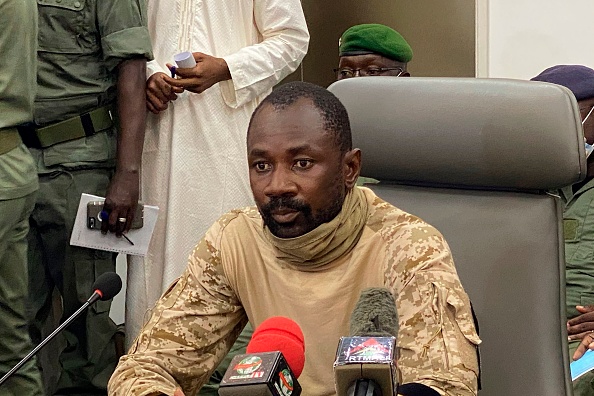Bamako – Mali’s junta leader Assimi Goita on Friday called for “sacred union” and a focus on development and stability in his first address to the nation since its neighbours lifted tough post-coup sanctions.
“The time has come for a sacred union around the higher interests of the nation,” Goita, who came to power in a coup in May 2021, said in a live broadcast.
“The fight for development is one that should engage all Malians.”
Heads of the Economic Community of West African States (ECOWAS) on Sunday lifted sanctions on Mali’s military regime, including a trade and financial embargo imposed in January after the junta unveiled a scheme to restore civilian rule within five years.
ALSO READ | Mali’s Assimi Goita: special ops commander turned strongman
The sanctions have badly hit the landlocked Sahel state, whose economy is already under severe strain from a decade-long jihadist insurgency.
The ruling colonels had yielded to ECOWAS demands by publishing a new electoral law and a timetable that includes a presidential election in February 2024, one the West African bloc accepted.
“Our approach has never been to question the return to constitutional order,” Goita said. “But this should be done in conditions of security and stability.”
He praised his military for what he described as its growing strength against jihadists.
“We must also move forward with determination and responsibility in the political and institutional reforms we are undertaking, as well as in development actions to enable our country to return to political and social stability,” Goita said.
ALSO READ | Mali strongman Goita reaches out amid international pressure
He spoke after he travelled to the western town of Nioro on Tuesday to launch a campaign to respond to food insecurity, saying humanitarian assistance was “a sovereign duty for the transitional authorities”.
In his address Friday, the junta leader thanked neighbouring Guinea and Mauritania for their “solidarity” throughout the embargo.
By allowing goods to transit through their port capitals of Conakry and Nouakchott, the pair allowed Mali to bypass the West African blockade.
The political crisis in Mali has been accompanied by a serious security crisis since 2012 and the outbreak of separatist and jihadist insurgencies in the north.
Follow African Insider on Facebook, Twitter and Instagram
Source: AFP
Picture: Getty Images
For more African news, visit Africaninsider.com


